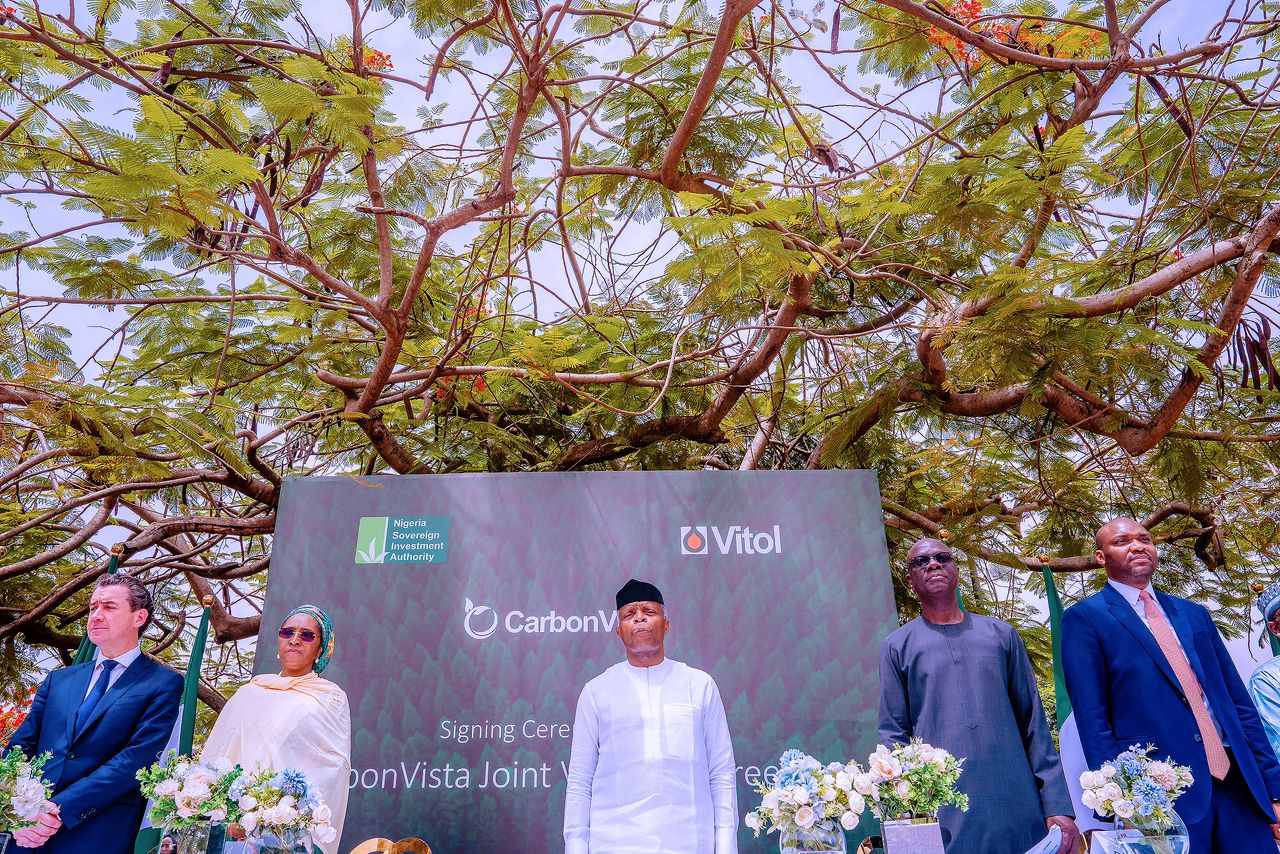The Nigeria Sovereign Investment Authority (NSIA) and Vitol, an oil refining and trading group have completed a $50 million joint venture to invest in carbon avoidance and removal projects. The joint venture which was first mooted in July last year, aimed to aggregate voluntary market carbon credit from project partners and third parties, as reported by PremiumTimes, a Nigerian online newspaper.
A press statement from the NSIA and Vitol, says, the joint venture will partner, “with local firms with proven track records of successfully delivering high-quality projects, combining carbon offsetting with social outcomes that contribute to the attainment of UN Sustainable Development Goals,” the statement reads in part. A new fund, the CarbonVista Fund will manage the joint venture.
Carbon credits are permits that allow the holder to emit one ton of carbon or equivalent greenhouse gasses. These permits are issued by governments or independent verifying companies and can be traded. Typically, carbon credits are issued to companies or projects that reduce or avoid carbon emissions. Firms that exceed government emissions limits (in places where those exist) or that seek to compensate for their carbon emissions then buy these credits to offset their emissions footprint. The idea behind carbon trading is that it should incentivise lower emissions and provide funding for renewables.
According to the statement, the joint venture will first invest in a household energy efficiency programme to supply 400,000 clean cooking and water filtration devices to Nigerian households. “Without incremental steps to address the fundamental issues, including water security and homestead energy access and consumption, achieving the ETP goals may remain unrealised and further exacerbate our climate risks,” Aminu Umar-Sadiq, Managing Director, and CEO of NSIA said.
Ultimately, the joint venture will create a voluntary carbon market for Nigeria. The first under the Africa Carbon Market Initiative (ACMI). Despite being government-backed, the carbon trading scheme will operate as a voluntary market.
“The Energy Transition Process is a tough process especially tough for those of us who are from gas-rich countries and fossil fuel-rich countries.,” said Nigeria’s Vice President, Yemi Osibanjo in a series of tweets posted on Monday, announcing the project. “For countries like ours rich in fossil fuel, we also find ourselves in a situation where we are energy poor. I believe Africa can become the first truly green civilisation – the first civilisation on earth to use renewable fuel for purposes of a transformative economic journey.” the vice president added.
Established by law in 2011, the Nigerian Sovereign Investment Authority is the investment institution of the Nigerian Federation set up to manage Nigeria’s sovereign wealth fund. The NSIA currently manages $2.95 billion according to GlobalSWF.com, a sovereign wealth fund tracker.
Vitol is the largest independent oil trader on the planet with interests in the production and refining of petroleum and integrated oils. The firm also sells liquefied petroleum gas and natural gas, and trades in non-ferrous metals and sugar. In 2020, the Rotterdam-based company traded 106 million metric tons of carbon dioxide.




















